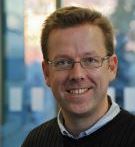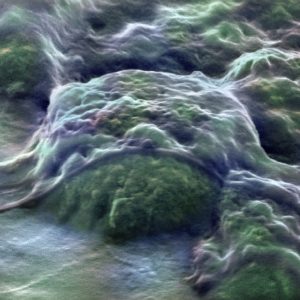Genetic Engineering of Mammalian Stem Cells
11–23 March 2018
Wellcome Genome Campus, Hinxton, UK
A comprehensive overview of the theory and practical laboratory skills required for the genetic manipulation of mammalian stem cells.
Summary
This intensive, 2-week laboratory-based training course provides a comprehensive overview of the theory and practical laboratory skills required for the genetic manipulation of mammalian stem cells, focusing on human iPS cells. Genome informatics, vector construction and genome editing strategies using CRISPR-Cas9 will be covered in interactive practicals and demonstrations, with discussions and lectures by international experts.
Laboratory work includes the use of CRISPR-Cas9 systems for advanced genome engineering and genetic screens, the design and construction of gene targeting vectors, the culture and transfection of human iPS cells and the derivation of iPS cells and organoid stem cells.
An emphasis will be placed on the integrated planning, design and successful experimental execution of gene targeting projects, allowing participants to gain the skills necessary to design, construct and target their own genes of interest.
Learning Outcomes
After attending this course, participants should be able to:
- Assess targeting strategies within a genomic context, identifying suitable targets and evaluate CRISPR gRNAs.
- Design and build vectors for CRISPR-assisted gene targeting using a variety of synthetic biology approaches.
- Apply cellular reprogramming methods to derive induced pluripotent stem cells for human and mouse.
- Undertake genome editing of human iPS cells, including manipulation of cells under culture conditions, applying different transfection techniques.
- Apply knowledge of CRISPR based genetic screening approaches for both pooled and arrayed formats
- Investigate new research techniques, exploiting tissue-derived organoids to explore gene function and cellular interactions
Programme
The programme will include lectures and practical laboratory/computer-based sessions covering the following topics:
Informatics
The visualization and interpretation of gene models will be presented focusing on the practical design of gene targeting strategies, including CRISPR gRNA selection and the design of oligonucleotide and plasmid HDR substrates. Students will also have the opportunity to develop their own CRISPR-mediated gene targeting designs using web-based tools and learn how to exploit public genomic data resources.
CRISPR Gene Targeting Vector Construction
Students will learn to apply recombineering and synthetic biology techniques to gene targeting vector construction and engage in the design, assembly and analysis of vectors for CRISPR-assisted gene targeting applications; including protein tagging approaches.
Stem Cell Culture/Genome Editing
Genome editing experiments will be performed where participants will learn feeder-free culture of human iPS cells and transfection techniques for plasmid or protein-based delivery of Cas9 to engineer a variety of useful alleles. Cell manipulation techniques including picking, expansion, archiving and genotyping of iPS cell clones will also be covered.
Genome-wide screens
Practical application of the CRISPR system to undertake in vitro genetic screens will also be explored. This includes the design of genome-wide screens, lentiviral transduction of mouse ES cells and bioinformatic analysis of next-generation sequencing data.
iPS Cell Generation
Participants will be introduced to protocols for the derivation of high quality iPSCs, using non-integrative reprogramming techniques, required for the characterisation, differentiation and genome editing of human iPSCs.
Organoid derivation and differentiation
Organoids (primary 3D epithelial culture) can be derived from many tissues of any mouse strain, which enables us to explore gene functions in diverse types of primary cells. A protocol for the establishment of murine intestinal organoids will be introduced, together with a demonstration of several transgenic organoids.
Instructors and speakers
Course instructors
Andrew Bassett
Wellcome Trust Sanger Institute, UK

Bon-Kyoung Koo
Wellcome Trust – MRC Cambridge Stem Cell Institute, UK
Guest speakers

Ben Davies
University of Oxford, UK
How to apply
How to Apply
Please complete the online application form (link?). Places are limited and will be awarded on merit. If you have any problems with the online application process, please contact us.
Please note: Applications must be supported by a recommendation from a scientific or clinical sponsor (e.g. supervisor, line manager, or head of department). A request for a supporting statement will be sent to your nominated sponsor automatically during the application process. Applicants must ensure that their sponsor is available to provide this supporting statement by the application deadline. Applications without a supporting statement cannot be considered.
Travel visas
Successful applicants will be provided with a support letter for their visa application, if required.
Please visit the following websites for further information on visiting the UK:
Cost
| Cost | Accommodation / meals | |
| *Course fee | £2185 | This is a residential course and the fee includes all accommodation and meals. |
*The course fee is subsidised and applies to non-commercial applicants. Please contact us for the commercial fee.
Bursaries
Limited bursaries are available (up to 50% reduction on the course fee) and are awarded on merit. If you would like to apply for a bursary, please complete the bursary section of the online application form.
Where there are many bursary applications, the selection committee may issue smaller amounts.
Bursaries can be applied for as part of the course application form. Applicants will be notified of a bursary award along with their place on the course, usually within one month of the application deadline. The decision of the selection committee is final.
Please note that both the applicant and sponsor are required to provide a justification for the bursary as part of the application.
Extra accommodation
If you wish to book onsite accommodation either side of the course dates, please contact the Genome Campus Conference Centre directly.
Testimonials
Feedback from the 2017 course:
“Thank you to the teachers and the advanced courses team, it was really an incredible experience.”
“Thank you so much for such an amazing learning and networking opourtunity! I am awash with ideas and excited to implement all of what I learned to my own research!”
“Thank you to the teachers and the advanced courses team, it was really an incredible experience.”
“This was by far and away the best course I’ve ever attended. Brilliantly put together with superb demonstrators, lab technicians, tutors, and guest speakers. I didn’t want to go home!”
“As an early career scientist, closely interacting with instructors and other participants for two weeks gave me great insight into diverse fields and confidence in approaching my own work from new angles. I am sure I will benefit from attending this course for years to come and will try and share this with as many colleagues as possible.”
“I want to thank all the organizers and people involved. This was really good experience!”

